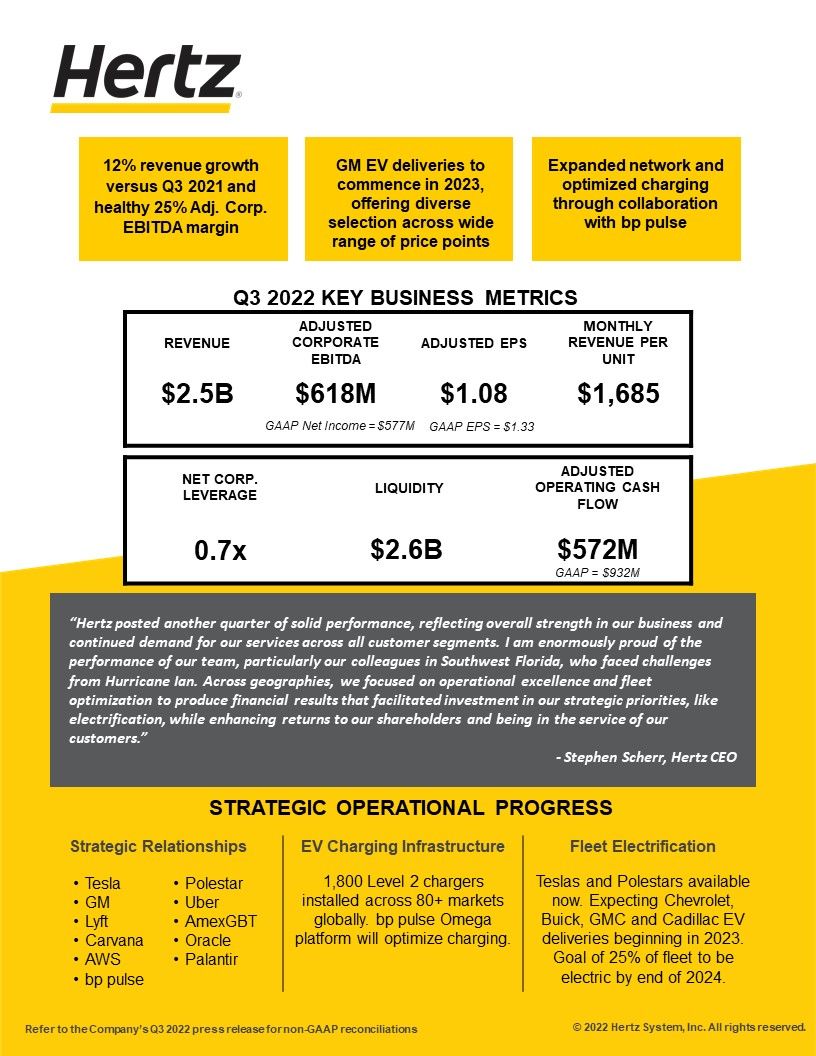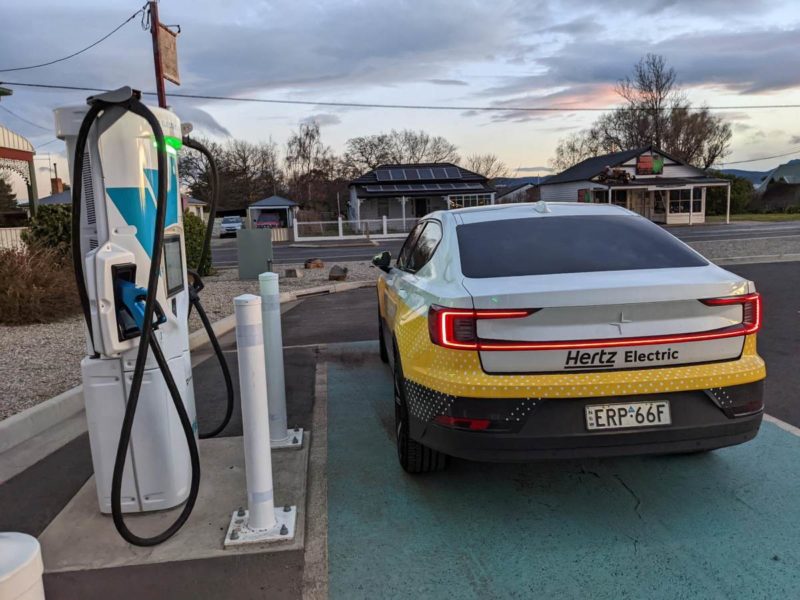Global car rental giant Hertz has revealed strong gains in revenues and demand as economies emerge from the Covid-19 pandemic as CEO Stephen Scherr focused on the importance of the transition to electric vehicles and establishing a zero carbon fleet.
Hertz reported third-quarter revenue of $US2.5 billion, which is an increase of 12 per cent year-on-year. This also highlighted strong demand across leisure, corporate and rideshare, according to Scherr. Corporate volumes have reached 75 per cent of pre-pandemic levels which is likely to keep improving over the coming quarters.
During the quarter, Hertz signed a mega EV deal with GM and Uber for up 175,000 EVs. This adds to the previous Tesla and Polestar partnerships. Hertz has also just announced a partnership with BP to develop a US EV charging network.

It’s worth noting that the Polestar partnership is already available across Australia. EV owners and those wanting to try a Polestar 2 EV can rent one through the company.
25% of Hertz fleet to be EV by 2024
Hertz is quite serious about increasing EVs in their fleet, particularly as it discovered that EVs are 50% cheaper to maintain in its fleet than similar petrol or diesel vehicles.
“We’ve targeted roughly a quarter of the fleet to be EV by the end of 2024,” Scherr told the earnings call.
“Over the course of 2023, we will begin to take in GM electric vehicles, which will come in at a very attractive price points and across a range of models.
“That on one hand will be a positive because it will give our customers a selection and a choice. It’ll enable us to operate an even higher margin in the context of renting those vehicles. And obviously, the debt rate will fall and go lower as we’re buying cars at a lower cap (capital) cost.”

Scherr also flagged more EV additions in the future.
“And so I think, the open of that valve if you will, the supply of EVs to add to what we’re doing around Tesla, and Polestar, I think will be a positive, both in terms of customer experience and in the overall economic picture around depreciation, for our products set.”
EV purchase cost savings potentially on the way
Hertz is also quite positive about reducing the cost of its yet-to-be-delivered EV fleet of 100,000 Teslas, and 150,000 with the upcoming US Inflation Reduction Act. With details on the act yet to be finalised, there may be some credits offered to corporate fleet customers like Hertz.
“There’s a tax credit of up to $7,500 per electric vehicle,” Scherr said. “Now there’s some rule-making to come. So this is going to be determined extensively on the lesser of 30% of the vehicle price and the delta between an electric vehicle and a comparable ICE vehicle. Exactly the measure of comparability kind of not yet known, okay?
“At the end of the day, I think this will be a credit that will offset corporate tax or corporate minimum tax; it has a carry forward life of about 20 years. And so it will be of considerable value to us.”
It’s good to see EVs becoming part of the greater rental business for Hertz and other companies. This will allow more people to experience EVs. Every EV experience offered will lead to spreading the word about EVs and help reduce transport emissions.

Things are starting to shift in Australia too with plans from Hertz and other rental companies like Sixt to offer more EVs. The challenge for these companies will be getting the word out there to those who are willing to pay a premium today for their EV offering and experience the future of transportation today.

Riz is the founder of carloop based in Melbourne, specialising in Australian EV data, insight reports and trends. He is a mechanical engineer who spent the first 7 years of his career building transport infrastructure before starting carloop. He has a passion for cars, particularly EVs and wants to help reduce transport emissions in Australia. He currently drives a red Tesla Model 3.


